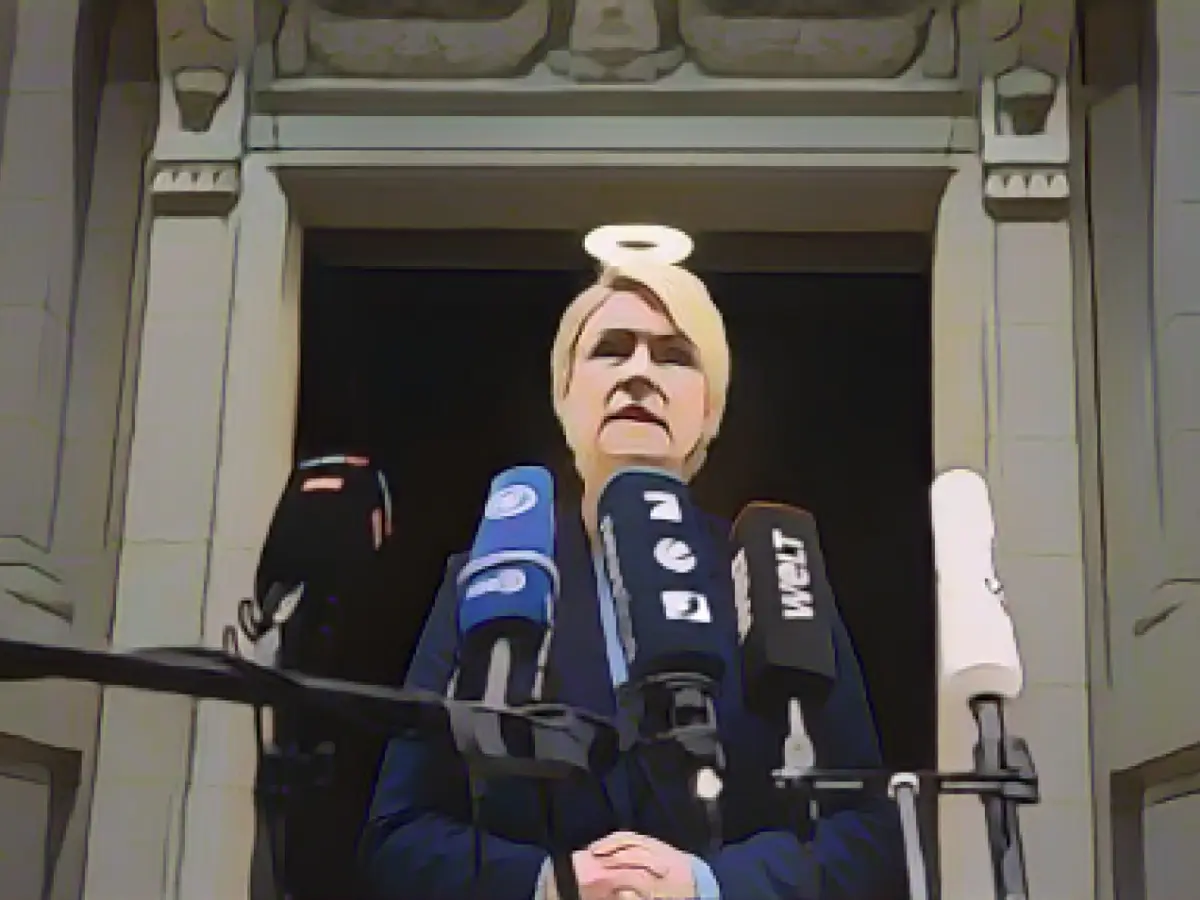Title: Speed Up Budget Proposal and Debt Brake Review, Urges Schwesig to Berlin Coalition
With Manuela Schwesig presiding over the Bundesrat from Mecklenburg-Western Pomerania and representing the SPD, she's urged the Berlin coalition government to swiftly present its budget plans for 2024 at a special Federal Council meeting. In anticipation of this meeting, Schwesig emphasized the importance of clarity on the budget structure and its impact on households and the economy.
Public Clarity and Economic Uncertainty
As citizens and businesses eagerly await a resolution on next year's budget, Schwesig's prompt release of the coalition government's budget proposal aims to quell lingering tension and uncertainty. By providing clarity on upcoming fiscal policies, decision-makers can better plan investments and make informed financial choices in various sectors.
Debt Brake, Need for a 'Sound Solution'
Schwesig also emphasized the need for further refinement of the debt brake to tackle current fiscal challenges without resorting to the black-and-white argument regarding its control. This 'sound solution' would ensure continued economic growth, social welfare, and unhampered climate protection initiatives, while maintaining the German debt rule.
Debt Brake Adjustments Based on Historical Precedents
Drawing on historical precedents, Schwesig proposed reevaluating exceptions to the debt brake to adapt to future budgetary requirements. The SPD representative urged for a balance between the debt rule and necessary investments for financial stability.
Shaping Budget Approaches and Debt Brake Reform
As a Bundesrat leader and prominent SPD member, Schwesig can significantly influence fiscal policy discussions and the debt brake debate:
- Advocacy for State Needs: By championing individual German states' budgetary needs and constraints, Schwesig can advocate for necessary debt brake reforms during Federal Council sessions.
- Policy Shaping: The SPD, in alliance with the Greens and BSW, has long advocated for a flexible debt brake while maintaining social welfare benefits. Schwesig's influence within the party can help shape more progressive policies.
- Coalition Dynamics: As the SPD plays a vital role in the 2025 February snap election and post-election coalition talks, Schwesig's views on the debt brake will guide the party's stance, potentially helping shape a more flexible debt brake, lowering thresholds, or permitting temporary suspensions in crisis situations.
- Legislative Persuasion: As the Bundesrat President, Schwesig cannot directly legislate, but by engaging in dialogues with political leaders, she can influence the overall fiscal policy direction and budget proposals, providing her party is part of the governing coalition.
The Current Stand on the Debt Brake
The current coalition government's stance on Schwesig's calls for a swift budget proposal and debate on the debt brake is shaped by diverse factors, including the looming snap election and ongoing fiscal policy debates.
Debate Points on the Debt Brake
- Debt Brake Rule:
- Since its adoption in 2009 and enshrining in the Basic Law in 2016 for the federal government and 2020 for the federal states, the debt brake rule limits the government to a 0.35% structural deficit and prohibits borrowing for the federal states during crises.
- The rule has been suspended in crisis situations, but it will be reassessed given the economic challenges and investment needs.
- Proposed Reforms:
- Proposed changes include linking new borrowing to the debt-to-GDP ratio, allowing federal states to incur new debt for investments, and creating a golden rule to exempt certain investments from the debt brake.
- Impact on Investments:
- The current debt brake can hinder necessary investments in critical areas like infrastructure, digitalization, and defense. A more flexible debt brake could provide space for public investment, stimulate private investment, and generate productivity gains, especially given Germany's declining workforce growth rate.
- Political Landscape:
- The upcoming February 23, 2025, election will focus on fiscal policy reforms, including the debt brake, with policymakers debating whether to loosen the rule to accommodate investment needs.
Despite the complexities and ongoing debates, addressing Schwesig's calls for a prompt budget proposal and debate on the debt brake will be crucial for adjusting Germany's fiscal policies to align with its economic needs and political realities.








